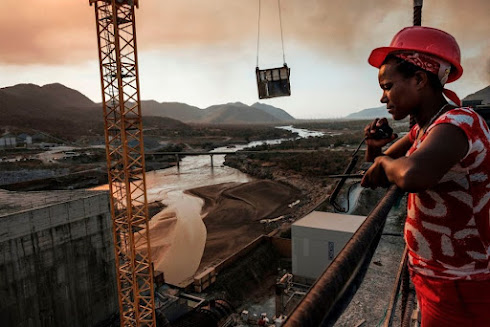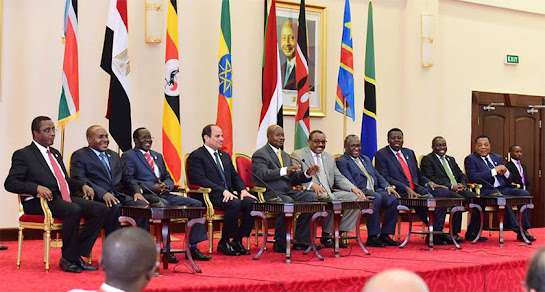Water Wars II: Conflict in the Nile Basin
 Disagreements are largely between Egypt and Ethiopia (Source)
Disagreements are largely between Egypt and Ethiopia (Source)
To bring the discourse back from Darfur to the Nile Basin, will the GERD cause a conflict?
In 2010, Ahmed al-Mufti, a prominent human rights lawyer and water expert, quit the Sudanese delegation negotiating with Egypt and Ethiopia about the GERD. He has publicly claimed the project "will cause a water war”.
The Nile Basin has been categorised as a basin 'Negotiating Current Conflicts', as there has not been a situation where riparian states have conflicted at such a large scale before. But, it is worth remembering no two countries (or in this case three) have ever gone to war over water... yet.
Egypt and Sudan's objections to the dam go far deeper than just hydrological impacts. The GERD represents a geopolitical shift in 'hydro-hegemony', i.e. which a country's ability to influence the river basin physically and politically. Due to its development status, this is a huge source of national pride for Ethiopia, especially considering the project is entirely self funded. Egypt struggles to accept this future where it is no longer the 'political master' of the Nile. When issues like nationalism and the perceived geopolitical strength and importance of countries is concerned, discourse naturally becomes more emotionally charged, hence the lack of progress over a solution.
Ethiopia does not rely on surface water Nile flow as much as Egypt and Sudan, who rely on 85% of the water that comes out of the Ethiopian Blue Nile. Both Sudan and Egypt are particularly worried when it comes to filling the dam, accusing Ethiopia of acting unilaterally over the filling. If it is not properly managed, at worst, it is estimated the filling of the dam would decrease the flow of the Blue Nile by up to 25%. An agreement has been reached that the dam can fill in the wet season, but it is management during dry periods that raises eyebrows.
This is where we can see parallels with the Darfur conflict. Although at a vastly smaller scale, at the end of the day, this is an infrastructure project that has the potential to create similar conditions of drought and competing land use, especially in the context of the climate crisis already exacerbating extremes of the wet and dry seasons. All three countries have internal conflicts, and a water crisis could only make things worse.

Nile 'hydro hegemony' traditionally lies with Egypt as illustrated by Cascão and Zeitoun (2010). The GERD has increased both Ethopia's material and bargaining power, upsetting the long held positions of Sudan and Egypt.
"International cooperation over freshwater resources as a resource has far outweighed international conflict." (Yoffe et al, 2003)
Sudan and Egypt respectively are beginning to realise considerable improvements in their river management practices are required to reduce the demand for all types of water uses, in particular agriculture. Solving management practices and water stress goes some way towards reducing the impact from the filling of the GERD.





Comments
Post a Comment